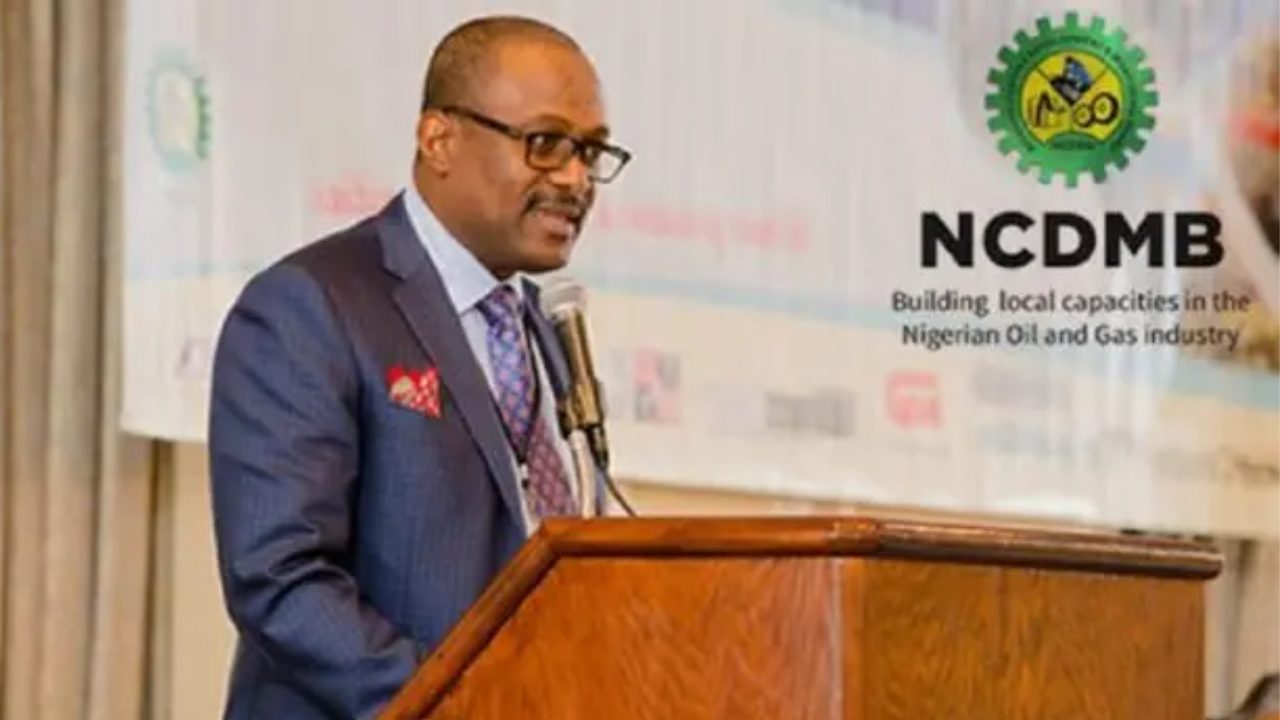TO SUPPORT “DECADE OF GAS” INITIATIVE, NCDMB CONCENTRATES ON KEY THEMATIC AREAS

The Nigeria Content Development and Monitoring Board, NCDMB, has designed key implementable initiatives to sustain Drive by the Federal Government to commercialize the country’s gas deposits and use if for industrialization aside attracting extra revenue to the economy.
Executive Secretary, ES, of the Board, Simbi Wabote, equally challenged all parties involved in various project’s execution aimed at supporting the initiative to provide annual status reports of the successes, issues, support required, and target completion dates of the plan.
Speaking on “Building Local Content and Capacity for the Realization of Nigeria’s Decade of Gas”, at the just concluded sixth Nigerian International Energy Summit (NIES), Wabote suggested that the status reports would be prepared by agencies, entities and stakeholders that are responsible for the various projects and initiatives identified in the 10-year gas program and presented at the NIES every year.
He challenged stakeholders not to get distracted or lose steam in the implementation of the program even as a new administration was set to assume office on May 29, 2023.
While calling for the continuity of the Decade of Gas program, he hinted that, “it is possible that the incoming government will give the program a new name but we must not lose focus on the importance of gas to our energy needs and economic development.”
The ES, also highlighted eight focus areas the Board was utilizing to drive the realization of the Decade of Gas initiative of the federal government.
These, according to him, include Human Capacity Development, Construction of Industrial Parks, Public-Private Partnerships and Nigerian Content Intervention Funds, Research and Development, Regulatory Framework, Regional Collaboration, and Enabling Business Environment.
Dwelling on the capacity building programs required to enhance the training and re-training of capable workforce for the industry, Wabote explained that NCDMB had “delivered close to 14 million manhours of training for acquisition of various skill sets required to explore, develop, operate, and maintain hydrocarbon facilities.”
He listed some of the Board’s Human Capacity Development tools and programs to include the Expatriate Quota Management System, STEM Education, Technical and Vocational Education Training (TVET), Institutional Strengthening, ICT Centers, and Training Certifications.
He stated that the Board’s capacity-building programs were impactful and acknowledged internationally, adding that the survey carried out by African Petroleum Producers Organization (APPO) to assess the standards in training institutions on the African continent rated Nigeria as one of the top countries with credible institutions for training the required manpower for the oil and gas industry.
Giving updates on the construction of oil and gas industrial parks, Wabote said the board has commenced issuance of allocation letters to credible investors in readiness for the commencement of operations within the NOGAPS Industrial Parks located in Bayelsa and Cross River states.
He informed that, “the NCDMB Gas Hub at Polaku is fully dedicated to domiciliation of gas related enterprises such as Pressure Reduction and Metering Station, CNG mother stations, LPG cylinder manufacturing plant, Gas processing facilities, power plant, and other similar facilities.”
Commenting on the theme of the summit, Wabote said the challenges of energy transition “has brought to the fore the need for every nation to leverage its own comparative cost advantage by developing the energy resources that it has in relative abundance
“Most countries including Nigeria have a mix of these resources, and they must apply local content investments to realise sustainable energy future.”
He described local content development as a philosophy that seeks to encourage the utilization of local resources such as humans, goods, services, oil, gas, wind, hydro, or solar while at the same time promoting in-country domiciliation of value-adding activities.
He further remarked that narratives around energy transition have shifted significantly from energy swap to energy mix and that this was because of the factual recognition that all forms of energy were important rather than demonizing one form of energy against the other, simply because some nations have depleted their reserves of certain energy sources.
He also noted that the European Union had re-classified gas and nuclear energy as Green-energy in 2022, while “coal production and consumption are on the resurgence as discussions are now about how to make it cleaner rather than referring to coal as ‘dirty fuel’.”
